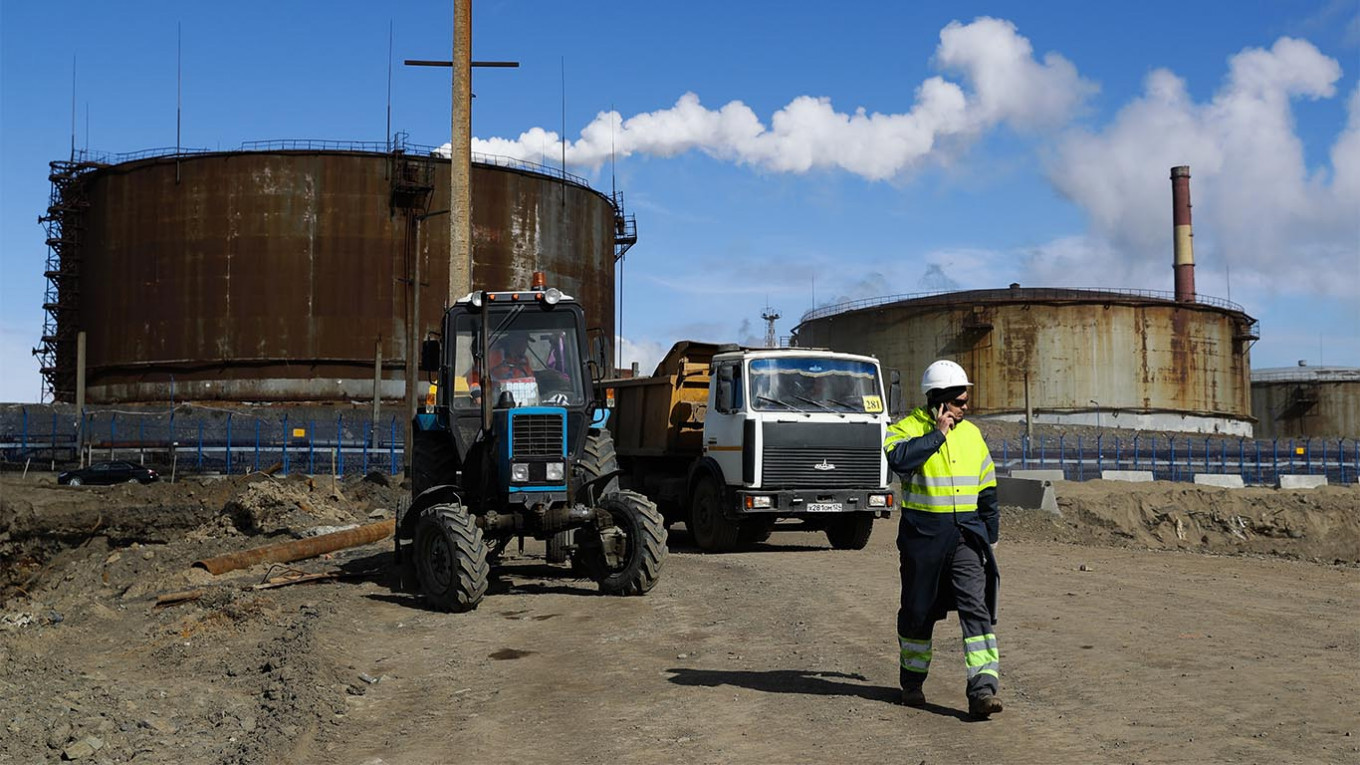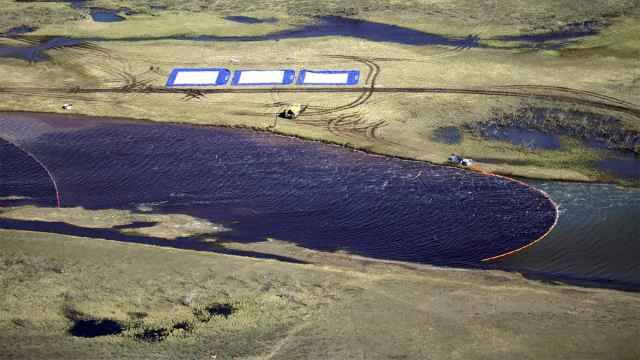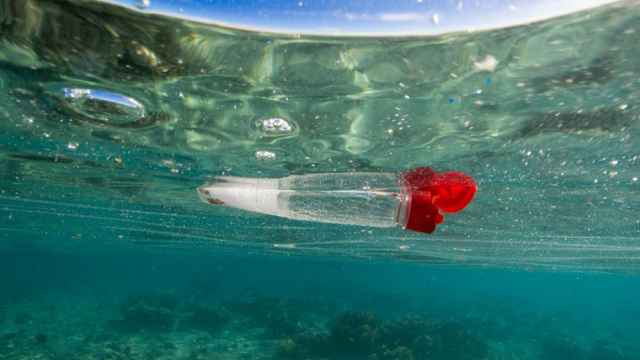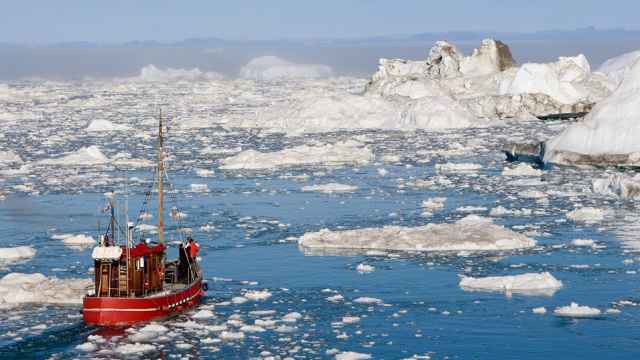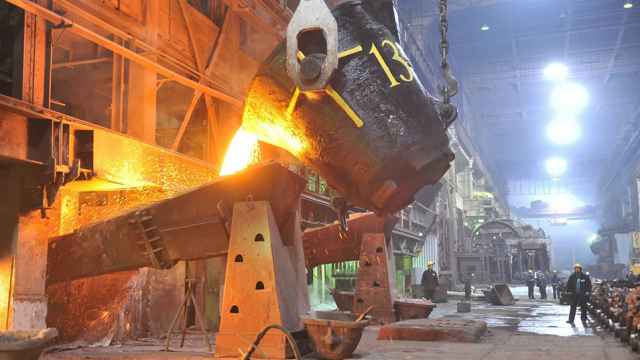Russian scientists have prevented a repeat of last year’s oil spill disaster near the Arctic city of Norilsk using satellite data, the Siberian Branch of the Russian Academy of Sciences said Thursday.
The May 2020 leak of 21,000 tons of diesel from a fuel tank is described as the Arctic’s worst ecological disaster and has been linked to melting permafrost caused by climate change.
Geologists from the Siberian Branch of the RAS said their study of satellite data gathered immediately after the spill predicted the imminent collapse of another fuel tank.
The scientists’ model showed that the tank exhibited similar signs of failure to Thermal Power Plant No. 3, which began sinking in August-September 2019 at a rate of 30-35 millimeters per year before ultimately being breached in May 2020.
“As soon as we understood the situation, we immediately conveyed our concerns to Norilsk, where they took urgent measures,” said Siberian Branch chairman Nikolai Dobretsov. “The cause of the disaster — the thawing of permafrost — was slowly spreading to another tank.”
“In effect, we have prevented another spill,” Dobretsov said in Thursday’s article for the Siberian Branch’s Science in Siberia news website.
Its authors said the prevention served as a real-life example of remote sensing technology helping to solve real-life problems across Russia’s vast territory.
“There are too few of us for this vast territory, so remote sensing and monitoring from afar is an extremely necessary and excellent tool for monitoring [the country’s] expanses,” said Dobretsov.
The fuel tanks are owned by a subsidiary of mining giant Nornickel. Following the May 2020 spill, Nornickel was ordered to pay a $2 billion fine, which President Vladimir Putin said would be spent on environmental improvement efforts in the Arctic.
A Message from The Moscow Times:
Dear readers,
We are facing unprecedented challenges. Russia's Prosecutor General's Office has designated The Moscow Times as an "undesirable" organization, criminalizing our work and putting our staff at risk of prosecution. This follows our earlier unjust labeling as a "foreign agent."
These actions are direct attempts to silence independent journalism in Russia. The authorities claim our work "discredits the decisions of the Russian leadership." We see things differently: we strive to provide accurate, unbiased reporting on Russia.
We, the journalists of The Moscow Times, refuse to be silenced. But to continue our work, we need your help.
Your support, no matter how small, makes a world of difference. If you can, please support us monthly starting from just $2. It's quick to set up, and every contribution makes a significant impact.
By supporting The Moscow Times, you're defending open, independent journalism in the face of repression. Thank you for standing with us.
Remind me later.


